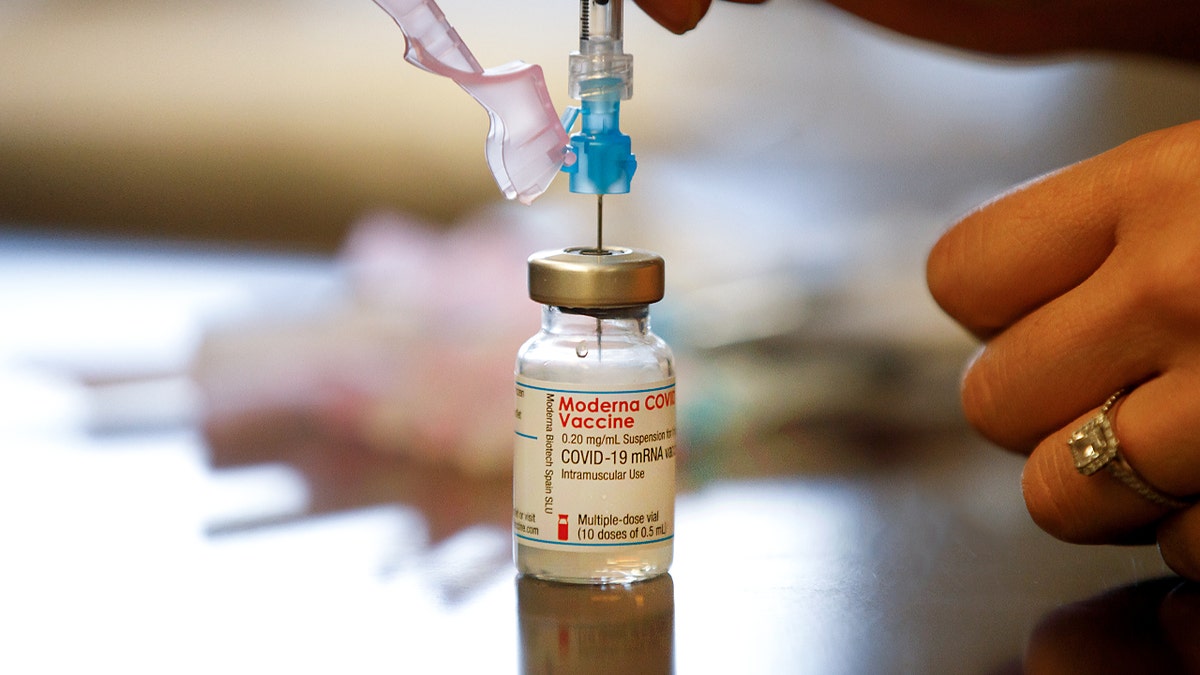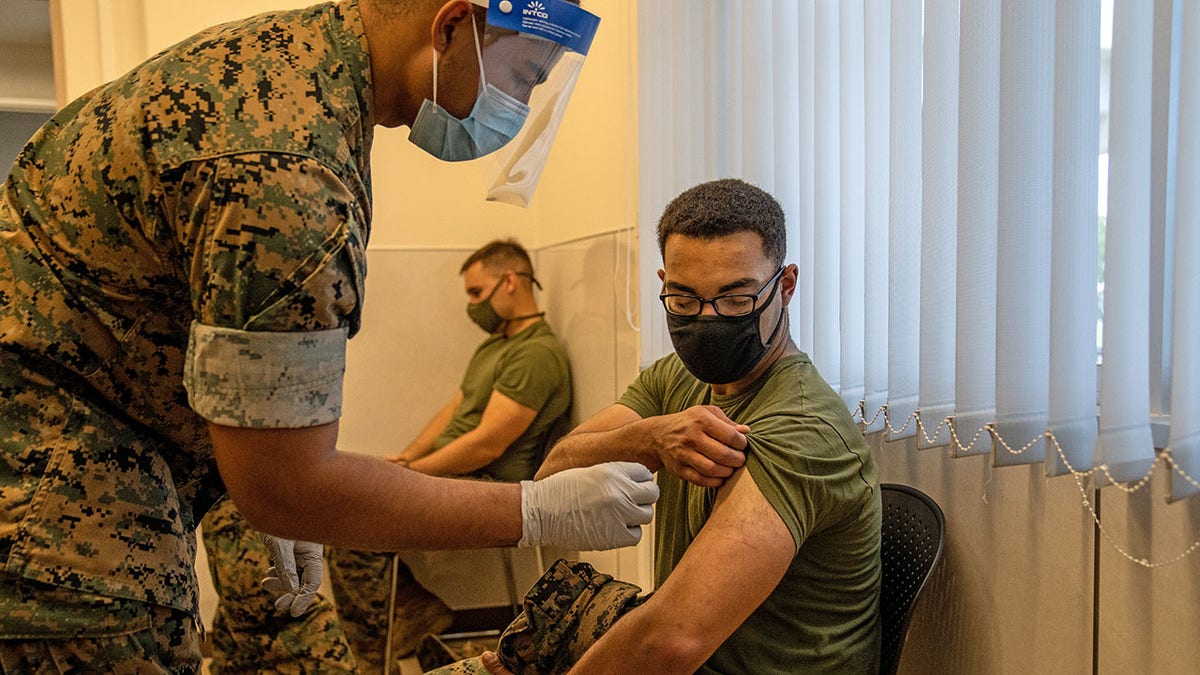Pentagon trying to ease concerns about covid vaccines
National Security correspondent Jennifer Griffin explains why military members are hesitant to get vaccinated and what the pentagon is doing to help.
Fox News has exclusively obtained new data from an online survey of military families showing there has been some improvement since December among those concerned with getting the COVID-19 vaccine. That first survey conducted six months ago showed half were reluctant.
Now 71% of troops surveyed say they have gotten the vaccine or plan to do so. Only 39% of active-duty spouses say they plan to get vaccinated – which could be a problem as hundreds of thousands of troops and their families plan to move to new bases this summer.
If the 600,000 troops and their families don’t get vaccinated before their summer moves, they could be a vector to spread the disease as happened during the 1918 Pandemic. The virus traveled with military personnel from camp to camp and across the Atlantic, and at the height of the American military involvement in the war, September through November 1918, influenza and pneumonia sickened 20% to 40% of U.S. Army and Navy personnel.

Fox News has exclusively obtained new data from an online survey of military families showing there has been some improvement since December among those concerned with getting the vaccine. (Photo by Cole Burston/Getty Images) ( )
Blue Star Families, a veteran and military family non-profit, and COVID Collaborative, which conducted the survey have made the following recommendations to the Pentagon:
● Offering a choice: 66% of active-duty service members say a choice in the type of vaccine increases their likelihood of receiving one.
● Guaranteeing time off: 22% of active-duty service members reported difficulty in obtaining an appointment that fits with their schedule.
● Increasing information to military-connected spouses: 30% of active-duty spouses remain unsure if the vaccine is available to them.
CDC EXPECTS COVID-19 VACCINE DATA ON KIDS BY FALL, WALENSKY SAYS
"So the opportunity to let people decide between Pfizer, Moderna and Johnson and Johnson, that makes a difference to folks," according to BlueStar Families’ CEO Kathy Roth-Douquet. "The second thing was making it part of their work week. A lot of military people feel their work is very essential. They are worried about losing that day if they are ill from the vaccine."
Spouses of those service members who are deployed have their own concerns and cannot afford a down day if taking care of children alone.
In terms of the troops: "if their commander can say, 'You've got the time off to both get the vaccine and to recover because I don't want to lose you for two weeks or more if you're sick,' that helps," Roth-Douquet explained.

A United States Marine prepares to receive the Moderna coronavirus vaccine at Camp Hansen on April 28, 2021 in Kin, Japan. (Photo by Carl Court/Getty Images) ( )
Jenny Akin, an Army spouse was among the new survey researchers. She herself was hesitant because she was pregnant. She then was convinced to get the shot.
"I just got my second vaccine yesterday, actually," said Akin. "And I came around really when the FDA came out and did provide support for pregnant women to receive the vaccine."
The Pentagon opened vaccine eligibility to what they describe as Tier 2 recipients – most of the young healthy force – on April 19. At that time just 37% of active duty service members had received at least one dose. By May 19, 58% of all service members had received one dose – a marked improvement, according to a senior defense official.
CORONAVIRUS IN THE US: STATE-BY-STATE BREAKDOWN
A new poster throughout the Pentagon provides a new incentive to get the COVID shots, allowing those who are fully vaccinated to take off their masks. Defense Secretary Lloyd Austin wants the vaccine to remain voluntary.
"I decided to get the vaccine for a few reasons," explained Nick Palmisciano, a former Army combat infantry officer who started the clothing company Ranger Up. "I was never really worried about myself because of my age group and relative health, but I do know a lot of people that are immunocompromised, and I never want to be the person that gives the virus to somebody unwittingly."
Forty percent of active-duty U.S. Marines say they do not plan to get the COVID vaccine.
Palmisciano explained the concerns of some troops.
CLICK HERE TO GET THE FOX NEWS APP
"One of the big issues that people have right now in the military and the veteran community is there's a general lack of trust any time the government's involved," Palmisciano told Fox News. "Whether you're talking about the anthrax vaccine back in the day that caused problems or burn pits or all these things that kind of the military is used as a guinea pig."
This former combat veteran just got his second COVID vaccine and is working hard to convince other troops and veterans about why they should do the same - for God and country.













































